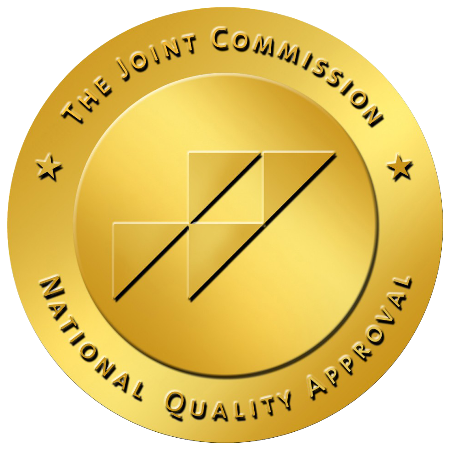Addiction Treatment
Stigma of Addiction
Take Pride in Your Recovery
Overcoming Shame Is Part of Overcoming Addiction
Defining the Stigma of Addiction
Webster’s dictionary defines stigma as a mark of shame or discredit. Addictions are typically attached to a feeling of shame or criticism, a sense of eternal judgment by a label. Society frequently perceives drug and alcohol addiction as a matter of morals, ethics, and criminality instead of a health problem. Even people who have been in recovery for years face the stereotype that they are somehow lower-class citizens.
The National Institute of Health (NIH) states the stigma of mental and substance use disorders as complicated attitudes, beliefs, behaviors, and structures that interact as individuals, groups, organizations, and systems that develop into discriminatory thoughts and acts.
Daily Support
Our team is on-site 24/7 to provide support when you need it.
Private Facility
In the heart of California’s gorgeous San Fernando Valley.
The Stigma of Addiction and Mental Illness
A 2013 national public opinion survey from Growth from Knowledge (Gfk), one of the world’s largest market research institutes, demonstrated that Americans hold significantly more negative attitudes toward individuals with drug addictions than those with mental illness. Although there is a want for social distancing from both groups, more respondents were against having an individual with drug addiction marry into their family or work closely with them on a job compared with an individual with mental illness.
Verify your insurance, it may cover the cost of treatment
In just a few minutes, we’ll give you perspective of how your insurance may help with your recovery from addiction. Even if you don’t see your insurance providers logo here, you may still be eligible for coverage.
Fill out the secure form and we will contact you with clarity about your insurance coverage.
Different types of Stigma
Structural stigma
The prejudice and discrimination in public and private institutions, government and legal systems, employers, educational institutions, health care systems, the criminal justice system, and the courts. Structural and public stigma interrelate because public stigma continues due to structural stigma in laws, regulations, and policies that support these prejudices and discriminations.
Public stigma
The general public’s negative opinions and the predetermined judgments of specific subgroups, such as first responders, judges, and police.
Self-Stigma
The discriminating methods associated with public stigma become unmistakable to people with substance use disorders, and they manifest this offensive stigma, wielding it upon themselves. Internalization of negative perceptions is predominant in self-stigmatization.
The Stigma of Recovery
Many studies have shown a strong correlation between a person experiencing the stigmas of addiction and their recovery. The research demonstrates how large of a role stigma plays in addiction, treatment, and after rehabilitation. Individuals continue to face negative views and harsh judgments beyond treatment and isolate themselves as when they were using, intensifying their relapse chances. If relapse does happen, it’s as if that attempt at recovery never happened. Perhaps they lose everything, all their progress, and disappoint people. So what? Why try? They are returning to what society perceives of them, sober or not.
Addiction treatment facilities that focus on incorporating the stigma of addiction in their treatment effectively build lasting peace of mind. Northridge Addiction Treatment Center recognizes the enduring effect of stigma on a person’s rehabilitation, and we commit to challenging that stigma. NATC strives to establish a healthy groundwork that leaves one equipped to overcome and reject derogatory labels and stereotypes.
Addiction Stigma Quotes
“I look at my arms, and I think God, who wants to go out with that? Heroin doesn’t leave those kind of marks, that’s ice. But that affects me, do you know what I mean? Like I can’t wear short tops, I can’t, just can’t be a normal person anymore.” —Isobel*
“Sometimes I go outside, and I really feel hated… I thought it must be how I dress or [the] expression on my face or something. You just constantly feel like you’ve got a big neon sign on your head saying ‘loser,’ you know, ‘contemptible loser.’ So when someone actually in a shop or something they’ll actually smile at you or act like you’re a normal being, human being, it’s really restorative, it cheers me up for days.” —Lachlan*
“At the end of the day, you’ve got to be happy with yourself, and I’m not happy with myself, I don’t look in the mirror and say I love myself, I don’t even like myself, I self-loathe myself, I hate myself, I hate what I’ve done to myself and done to others by doing it to myself.” —Tim*
*(U.S. National Institute of Health – National Library of Medicine Journal Literature – Stigma and Self-Stigma in Addiction)
Addiction Stigma Examples
- If you have ever turned down a drink at a social gathering and everyone immediately asked if anything was wrong
- If you have ever been asked, “Why aren’t you drinking tonight?” at a social gathering for whatever reason, and you were afraid to answer because you felt somebody might judge you
These are some examples of situations of the stigma of addiction. While these circumstances might not stand out in your mind if you don’t have a substance use disorder, this scenario is an enormous obstacle to someone struggling with alcoholism.
Frequently asked questions about Addiction
How Does Society View Recovering Addicts?
What Are Addiction Stereotypes?
What Are the Consequences of Addiction Stigma?
How Do You Break the Stigma of Addiction?
Feedbacks & Reviews
Patient experiences
We are proud to earn acclaim from our community with a 4.9 rating on Google. See all our Google reviews
“ I can’t explain the gratitude that I have for this location. They took my son in and mentored him and loved him like he was family. Today by the grace of God he is sober and living the life that the good Lord intended for him. My family and I will be forever grateful for this facility and the many God sent “Angels” that rescued my son from himself.”
Very good place to get help at. All of the staff is Wonderful. Daily staff cleaning. Great program to enroll in for treatment. Came in here as a dickhead wanting to leave and not be in treatment, but once my time came for me to discharge I actually ended up extending my time here. If I can do it and Love it- anyone can. Got to be patient and be WILLING/OPEN to change in yourself. Highly recommend!"
Our facility
About Northridge Addiction Treatment Center
We believe that recovery is more than just sobriety; it is an opportunity for a fresh start in life.
NATC is a premier luxury facility nestled in the Los Angeles Valley, surrounded by California’s breathtaking beaches and mountains. Our exclusive twelve-patient capacity ensures a tranquil, open environment where you can focus on healing not just from addiction, but on restoring your well-being. We offer our residents the choice of semi-private accommodations, with private rooms available upon request for added comfort.
Addiction Treatment Programs at NATC
Our luxury facility provides numerous amenities that focus on your comfort, while our medical team and support staff focus on your individualized care.

Drug types
Medical Detox
Our main objectives during medical detox are comfort and safety to foster our resident’s confidence in a lasting recovery after a successful detox.
- Alcohol
- Benzos
- Opioids
- Stimulants

Treatment Types
Residential Treatment
Our luxury facility places high importance on a peaceful and healing environment for deep introspection to address the addiction source, not merely the substance use, for effective and beneficial treatment.

Medically Assisted
Dual Diagnosis
NATC uses integrated treatment, acknowledging both disorders’ relation and core causes to equip you with the foundation to control your mental health without substance use.


